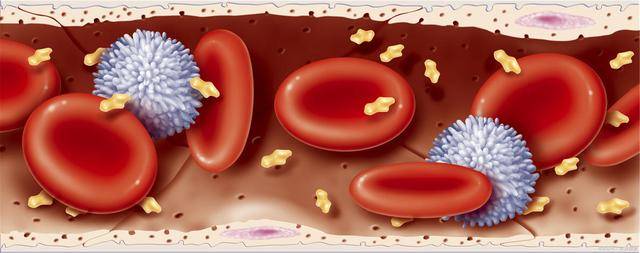With the development of society and the improvement of living standards, many people enjoy eating rich and fatty foods in their daily lives. Although this type of food can satisfy people’s appetite, excessive consumption can also lead to a gradual increase in blood lipid levels.
Moreover, as age advances, various bodily functions gradually decline, and the peristaltic ability of blood vessels decreases. This can result in the accumulation of toxins and waste in the blood vessels, thereby increasing the burden on the blood vessels and having very detrimental effects on overall health.
Therefore, it is essential to learn how to appropriately regulate one’s lifestyle to reduce the burden on the blood vessels and avoid the troubles of vascular diseases.
Suffering from high blood lipids, avoiding 3 habits, frequently consuming 2 substances, stabilizing blood lipids, may help “clean” the blood vessels.
Avoid 3 habits:
Smoking:
Long-term smoking not only damages lung health, leading to the accumulation of toxins and waste in the lungs and the development of lung diseases but also greatly stimulates the blood vessels. This stimulation can even cause abnormal vascular constriction, affecting blood circulation and resulting in blood vessel blockages.
This is because cigarettes contain harmful substances such as nicotine and tar, which are highly irritant. Prolonged smoking can lead to excessive accumulation of toxins and waste in the blood vessels, affecting blood circulation. Therefore, individuals with high blood lipids should quit smoking as a part of their routine to stabilize blood lipid levels, promote blood vessel clearance, and potentially help “clean” the blood vessels.
Alcohol abuse:
Long-term excessive alcohol consumption can harm liver health and interfere with lipid metabolism in blood vessels, leading to gradually elevated blood lipid levels and even causing vascular blockages. Hence, individuals with high blood lipids should refrain from alcohol consumption in their daily lives to stabilize blood lipid levels, reduce blood viscosity, prevent vascular blockages, and stay away from vascular diseases. Additionally, this can lessen the burden on the liver, minimizing the impact of alcohol on the liver and safeguarding overall health.
Anger:
If one does not manage their emotions well, frequently getting angry can harm the blood vessels. When individuals get angry, the secretion of adrenaline from the adrenal glands increases, adding more burden to the blood vessels and potentially triggering high blood pressure. Furthermore, it can aggravate lipid deposition inside the blood vessels, leading to a rapid increase in cholesterol and triglycerides, thus causing high blood lipids. Therefore, individuals with high blood lipids should promptly break the habit of getting angry and approach life with a positive and optimistic mindset to maintain vascular health, steer clear of vascular diseases.
Frequently consuming 2 substances:
Buckwheat:
For individuals with high blood lipids, consuming buckwheat regularly can be beneficial. Buckwheat offers high nutritional value and contains abundant rutin, which effectively supports respiratory health. Rutin can reduce cholesterol and triglyceride levels in the body. Consistent consumption promotes blood circulation, flushes out toxins and waste from the blood vessels, and aids in maintaining vascular health by stabilizing blood lipid levels. Therefore, incorporating buckwheat into the diet can stabilize blood lipids, lower blood viscosity, prevent vascular blockage, and ward off vascular diseases.
Kelp:
Kelp is a common seaweed rich in potassium salts and calcium. Regular consumption can lower cholesterol and triglyceride levels in the blood vessels, preventing vascular diseases. Additionally, the proteins and dietary fiber in kelp can accelerate gastrointestinal motility, aiding in the elimination of toxins and waste from the intestines and supporting weight loss. For individuals with high blood lipids, consuming kelp consistently can clear the blood vessels, eliminate toxins and waste from the blood, reduce the burden on blood vessels, enhance vascular elasticity, prevent vascular blockages, and high blood lipids.
It’s crucial to regulate one’s diet and lifestyle effectively to prevent an increase in blood lipids and care for vascular health in daily life.


